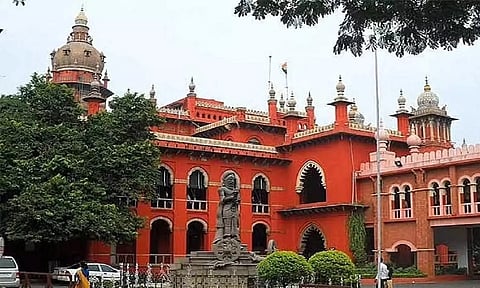

CHENNAI: In a setback for the Tamil Nadu government, the Madras High Court recently gave the green signal to online rummy and poker, while upholding the legality of the state law prohibiting online games of chance. However, the court said the state could regulate online rummy and poker by imposing conditions on the age of players, timing of games, and other factors. The nation’s apex court found that the state had ‘miserably failed’ to demonstrate that online games of rummy and poker are different and distinct from the offline versions of the games.
A dozen gaming platforms had filed petitions on which the first bench of chief justice Sanjay Vijaykumar Gangapurwala and Justice PD Audikesavalu passed orders saying that rummy and poker are games of skill and that prohibition was valid only against games of chance. Noting that the state has authority to enact legislation to prohibit online gambling, as well as bring in regulations to online games of skill, the court remarked that TN must incept pragmatic regulatory measures rather than imposing a blanket ban, on account of public welfare.
One cannot ignore the pitfalls of addiction to online gambling, and the ensuing debt spirals. In Tamil Nadu, several individuals fell prey to the vicious cycle of online gambling that came with the promise of a rich dividend. As nefarious operators spotted an opportunity to fleece unwitting gamers of their hard-earned money, thousands of portals doling out card games began vying for the player’s attention, raising the stakes, urging gamers to pay more to play more, or win back their lost earnings.
Earlier in March, it was reported around 40 people in Tamil Nadu had resorted to suicide on account of debts accumulated via online gambling. Telangana also has its share of casualties to such vices. One of the things that both the Supreme Court has drawn attention to is the deployment of bots in games such as rummy and poker, as well as the fixing of games through dubious methods in which the software or the dealer per se is aware that certain cards are without any substantive material.
There is also a bone of contention on school kids or minors being addicted to such games – like that teenager in Ramanathapuram who maxed out his mother’s bank account by paying for games worth Rs 90,000 during the thick of COVID. As a remedy, most legit rummy sites now disallow players below 18 years from registering on platforms. They also have strict KYC checks and disclaimers to ensure underage players are kept off, but these aren’t absolutes immune to circumvention.
An overarching concern is regarding taxes levied on online gaming platforms. The GST Council, earlier this year, had announced its decision to impose a 28% GST on the amount being paid at the entry level wager for online gaming. The move was viewed as part of the efforts of the governments, both state and central, to regulate online real-money gaming. The flip-side of this taxation regime is that several fantasy league start-ups were compelled to shut shop as the gamers found the platforms exorbitantly prohibitive. It’s an opportunity lost as far as India’s online gaming industry is concerned, as the tax regime prevents it from garnering even a minuscule share of the billion-dollar global gaming ecosystem.